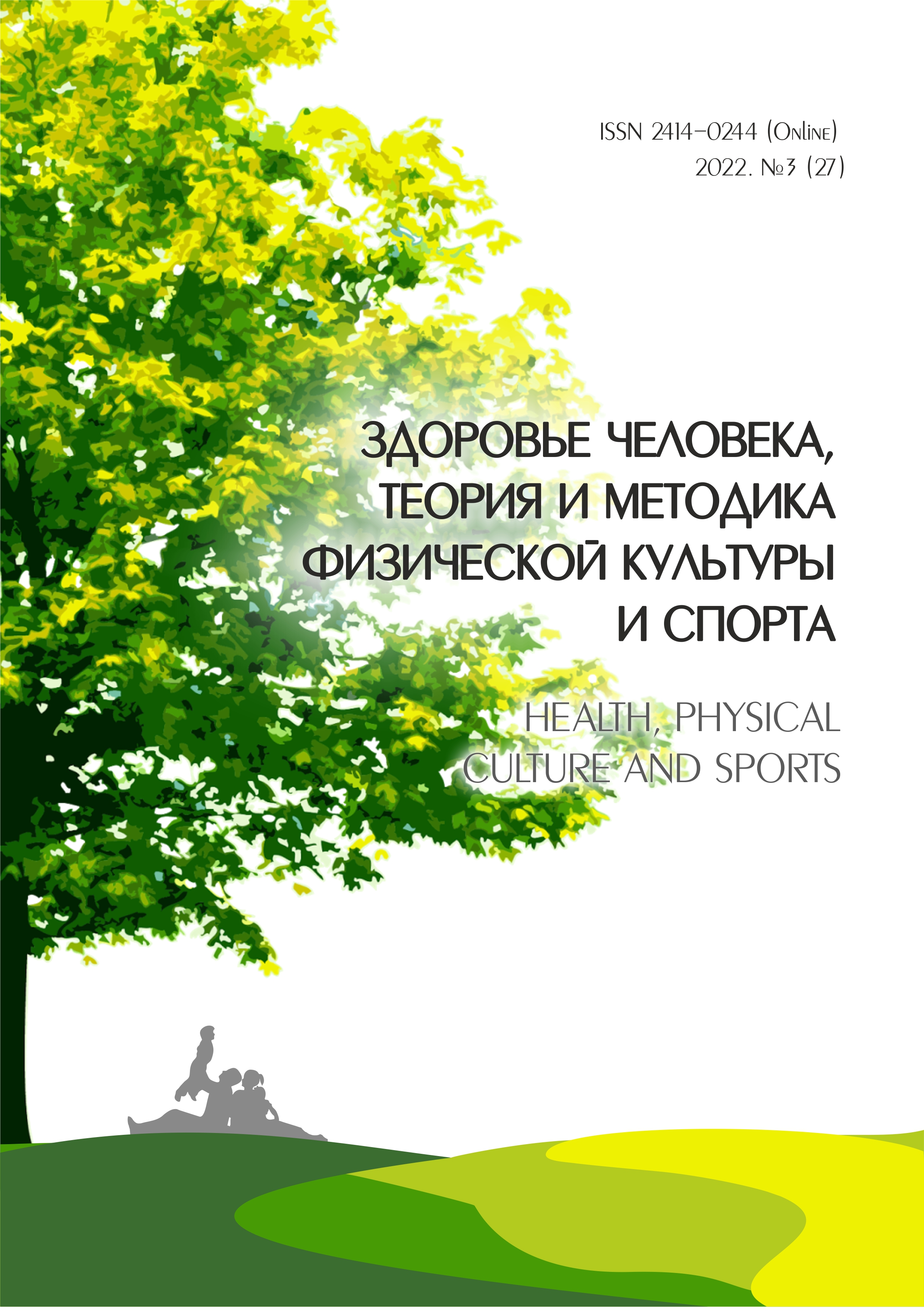THE FORMATION PROBLEM OF THE INDIVIDUAL MOTOR AND CULTURAL LITERACY AMONG THE SUBJECTS OF THE RURAL SCHOOL EDUCATIONAL SPACE
Abstract
The motor and cultural literacy problem of a person as a cognitive basis for a healthy lifestyle in recent years in the Republic of Belarus (as well as throughout the world) has become increasingly relevant. The reason for this is the progressing dynamics of the musculoskeletal system diseases, starting from childhood, and the related psychosomatic and neurological dysfunctions, which subsequently lead to internal human diseases. The rural community is no exception here. The purpose of the article is to present the results of pedagogical innovation in the motor and cultural literacy formation of a person in a rural community. The main research materials and methods used in the study are scientific and theoretical analysis, generalization and synthesis of other authors research results, as well as their own. The latter are presented in the article by the indicator data of pedagogical knowledge control, skills and subjects physical condition of the educational space of a rural school based on questioning, somatometry, physiometry, chronometry. The study of the methodology effectiveness for the motor and cultural literacy formation of the individual was carried out as part of a natural pedagogical experiment in 2017-2020 in 23 institutions of general education in rural areas of the Republic of Belarus, covering about one thousand rural residents aged 3 to 79 years. The result of the innovation was the implementation of the same name methodology into the educational space of rural schools as movement and cultural centers and its experimental and pedagogical justification. The pedagogical experiment has established that the system of organizational, educational and socio-pedagogical measures being implemented contributes to the awareness of the motor culture importance by the majority of rural community representatives as a factor in the health-creative improvement of human nature based on compensation for the imbalance between the real volume and quality of the individual's motor activity, on the one hand, and the existing need for a natural environment correction of these categories on the other hand.
Downloads
References
Абрамова В.В., Линевич Б.Б. Формирование культуры здоровья в процессе спортивной подготовки как педагогическая проблема // Теория и практика физической культуры. 2019. № 8. С. 42–46.
Ахвердова О.А., Магин В.А. К исследованию феномена «культура здоровья» в области профессионального физкультурного образования // Теория и практика физической культуры. 2002. № 9. С. 5–7.
Бальсевич В.К. Онтокинезиология человека. М. : Теория и практика физической культуры, 2000. 275 с.
Белоуско Д.В. Методика исследования привлекательности двигательной деятельности для студентов // Здоровье человека, теория и методика физической культуры и спорта. 2022. № 1(25). С. 24–31. doi: https://doi.org/10.14258/ zosh(2022)1.03
Выдрин В.М., Курамшин Ю.Ф., Николаев Ю.М. Осмысление интегративной сущности физической культуры — магистральный путь формирования ее теории // Теория и практика физической культуры. 1996. № 4. С. 59–63.
Денисова Г.С., Тузова А.А. Физическая культура как социокультурный феномен // Здоровье человека, теория и методика физической культуры и спорта. 2019. № 4(15). С. 11–17.
Маринич В.В., Хорунжий А.А., Губа В.П. Мониторинг функционального состояния юных спортсменов в единоборствах // Материалы Всероссийской научно-практической конференции, посвященной 90-летию журнала «Теория и практика физической культуры». М. : Российский государственный университет физической культуры, спорта, молодежи и туризма, 2015. С. 436–439.
Михальчи Е.В. Эмоциональный и ценностный аспекты внутренней картины здоровья у современных молодых людей // Здоровье человека, теория и методика физической культуры и спорта. 2022. № 1(25). С. 15–23. doi https://doi.org/10.14258/zosh(2022)1.02
Сергеева Б.В., Игнатова Д.А. Способы формирования здорового образа жизни младших школьников во внеурочной деятельности // Здоровье человека, теория и методика физической культуры и спорта. 2018. № 2(9). С. 50–62.
Смирнов Н.К. Здоровьесберегающие образовательные технологии в работе учителя школы. М. : АРКТИ, 2003. 272 с.
Снежицкий П.В. Генезис двигательной культуры личности // Восточно-Европейский научный журнал. 2021. № 7(71), ч. 3. С. 50–57. doi: 10.31618/ESSA.2782-1994.2021.3.71
Снежицкий П.В. Двигательно-поведенческий аспект физической культуры личности в сельском сообществе // Здоровье человека, теория и методика физической культуры и спорта. 2021. № 24(4). С. 4–24. doi: https://doi.org/10.14258/zosh(2021)4.01
Снежицкий П.В. К вопросу о двигательной культуре личности в сельском сообществе Республики Беларусь // Мир спорта. 2020. № 2. С. 75–79.
Снежицкий П.В. К вопросу о формировании двигательной культуры как основы здорового образа жизни населения Республики Беларусь в социальных и профессиональных сообществах // Ученые записки. Минск : БГУФК, 2018. С. 184–189.
Снежицкий П.В., Грузд Н.М. Агональность как средство формирования двигательной культуры школьников // Здоровье человека, теория и методика физической культуры и спорта. 2022. № 26(2). С. 40–52. doi: https://doi.org/10.14258/zosh(2022)2.04
Сычева Т.Ю., Султанова А.Н., Слугин А.В., Кустова Е.А. Клинико-психологические особенности лиц с нарушениями пищевого поведения // Материалы Всероссийской научно-практической конференции «Наука и социум». Новосибирск, 2020. № XI.
Mirzayev J.A. Complex application of muscle contraction modes to improve postural control in multiple sclerosis // Health, Physical Culture and Sports. 2022. No 1(25). Pр. 64–69. doi: https://doi.org/10.14258/zosh(2022)1.08
Copyright (c) 2022 Health, physical culture and sports

This work is licensed under a Creative Commons Attribution-NonCommercial 4.0 International License.
An author should not normally publish manuscripts describing essentially the same research in multiple journals or publication venues. Such redundant publication is generally considered to constitute unethical publishing behavior, and if discovered may result in a manuscript under consideration being rejected, or a published article being retracted.
Authors of manuscripts reporting on original research should present an accurate account of the work performed, accompanied by an objective discussion of its significance. Underlying data should be represented accurately in the manuscript. The manuscript should contain sufficient detail and references to permit others to replicate the work. The fabrication of results and the making of fraudulent or knowingly inaccurate statements constitute unethical behavior and may be cause for rejection or retraction of a manuscript or published article.





